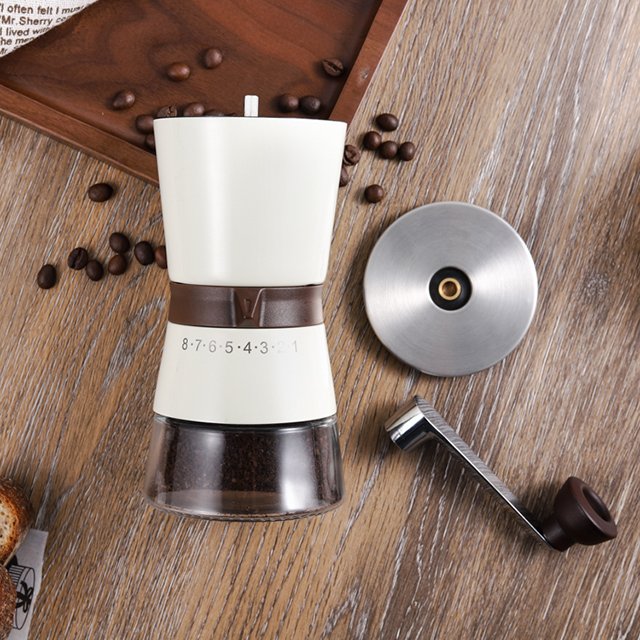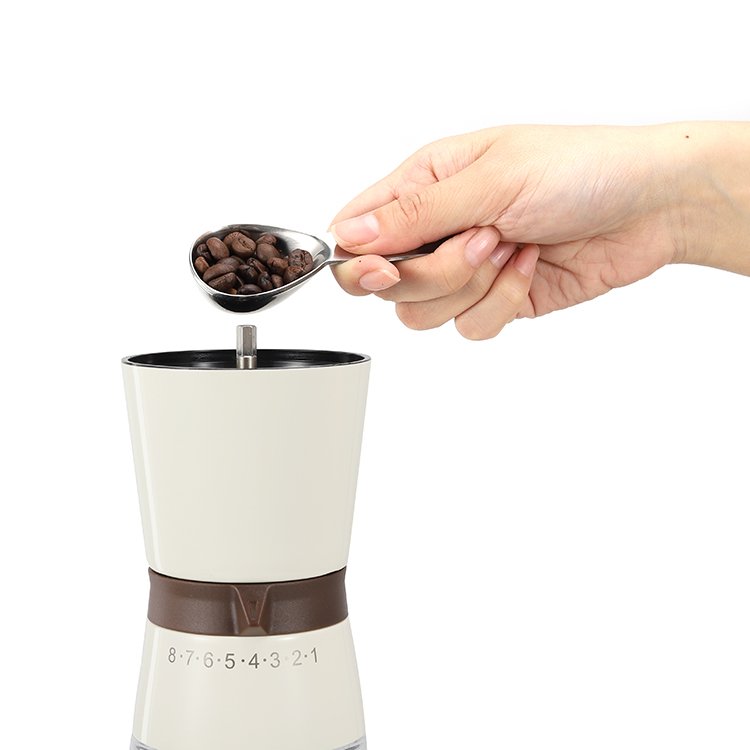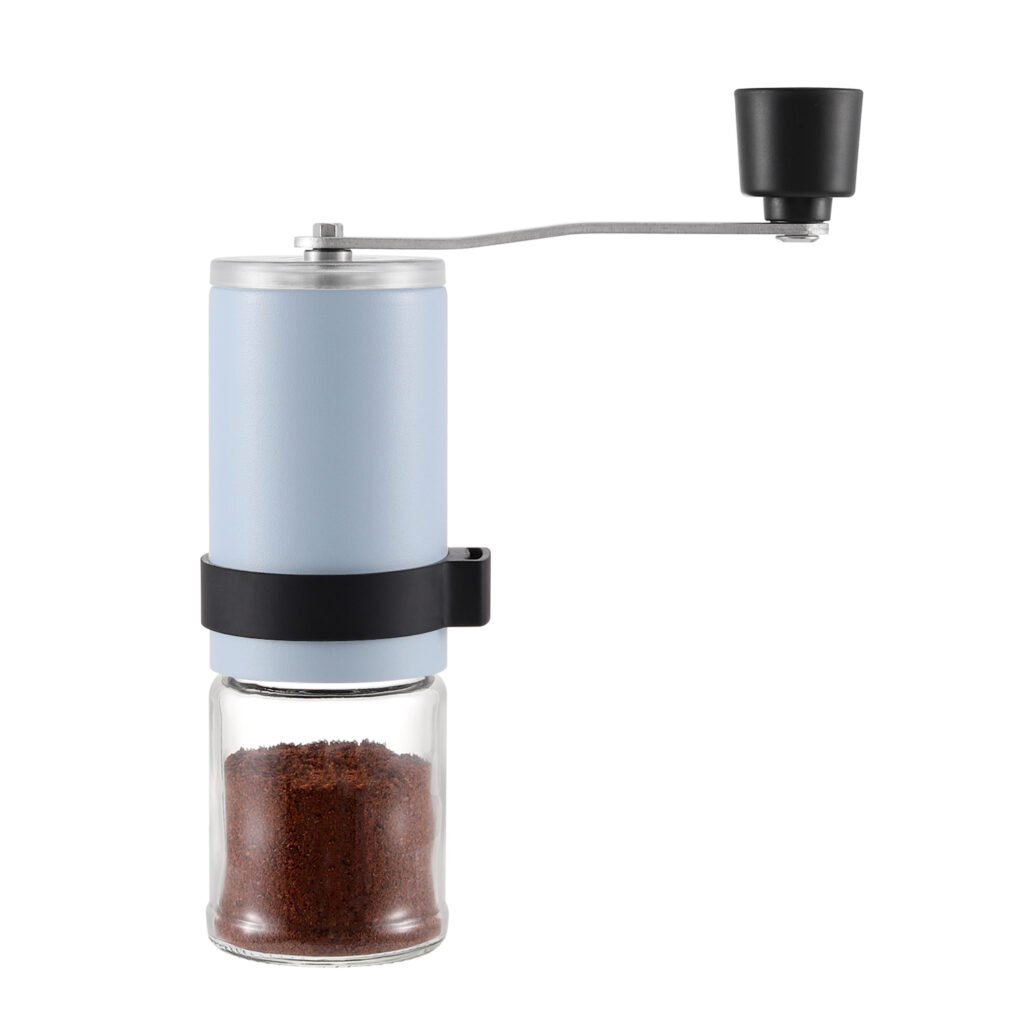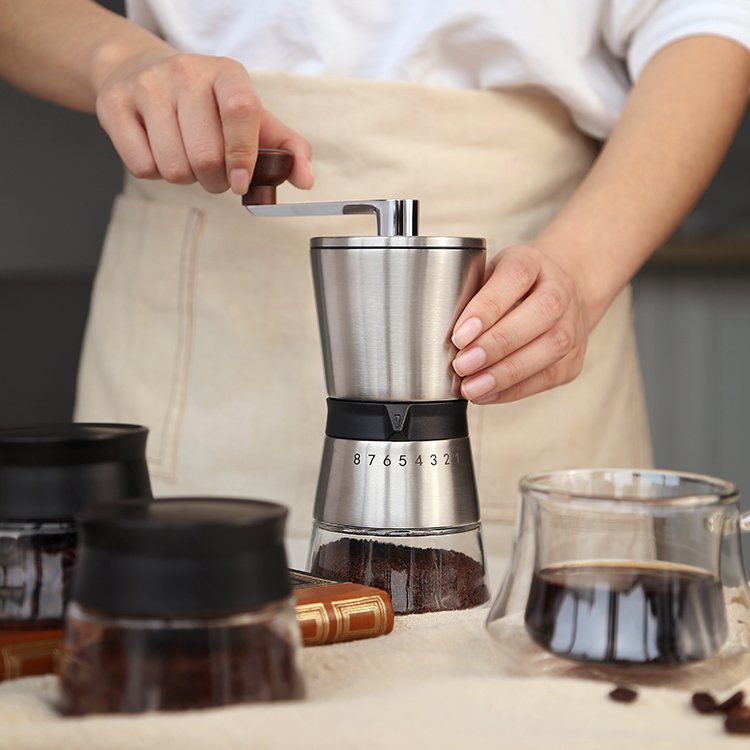
An excellent grinder is the secret to unlocking the full potential of your coffee. Whether you prefer a hand grinder for coffee beans, a portable coffee grinder, or a rechargeable coffee grinder, your choice between a manual or electric mini burr coffee grinder shapes your daily coffee ritual. A manual coffee grinder offers you complete control and portability, perfect for enjoying the hands-on process of making your coffee. An electric coffee grinder, however, provides speed and a consistent grind with minimal effort—ideal when you need great coffee fast. Both the manual grinder and the electric burr grinder have their place in the world of specialty coffee.
Manual vs. Electric: The Ultimate Pros and Cons

Deciding between a manual and an electric grinder comes down to understanding the pros and cons of each. This coffee grinder comparison will help you weigh the benefits and drawbacks to find the perfect match for your morning routine. Let’s dive into the pros and cons.
The Pros of a Manual Mini Burr Coffee Grinder
If you love the craft of making coffee, a manual grinder might be your best friend. The pros of manual coffee grinders are significant for coffee lovers who value experience and portability.
- Total Portability: Manual coffee grinders are small and lightweight. You can easily pack one in your bag for travel, camping, or the office. You never have to settle for bad coffee again.
- Quiet Operation: You can grind your coffee beans early in the morning without waking up the whole house. The gentle sound is part of the peaceful coffee ritual.
- Full Control: You power the grinder with your own effort. This gives you a hands-on connection to the grinding process. You can feel the coffee beans breaking apart and adjust your grind settings with precision for the perfect flavor.
- Affordable Quality: High-quality manual burr grinders are often more affordable than their electric counterparts. You can get an excellent grinder that produces a consistent grind without breaking the bank.
Pro Tip: What to Look for in a Manual Grinder
Here’s a look at some popular manual models and what makes them stand out. This table highlights the pros and cons of each.
| Grinder | Portability | Control/Adjustment | Notes |
|---|---|---|---|
| 1Zpresso Q Air | Highly portable | Good external adjustment | A budget-friendly choice with great performance. |
| 1Zpresso Q2 | Very compact | Good external adjustment | A legendary travel grinder that set the standard. |
| Kingrinder P2 | Portable | Less smooth bearings | A cheaper option, but feels less premium. |
The Cons of a Manual Grinder
While manual grinders have many pros, you should also consider the cons. The drawbacks often relate to time and physical effort. Thinking about these pros and cons is key.
- It Takes Time and Effort: Grinding coffee by hand requires muscle. Grinding enough coffee beans for more than one or two people can feel like a workout. If you’re in a hurry, this is a major downside.
- Inconsistent Grind Size in Cheaper Models: Some entry-level manual grinders (often under $50) use lower-quality ceramic burrs and plastic parts. This can lead to an inconsistent grind size, especially for coarser settings like French press. An uneven grind means some coffee grounds get over-extracted and others get under-extracted, resulting in a disappointing cup.
- Potential for Wobbly Burrs: The vibrations from grinding can cause the grind settings on poorly designed grinders to shift. A wobbly burr produces an inconsistent grind. This is one of the biggest cons for those seeking quality.
The Pros of an Electric Mini Burr Coffee Grinder
An electric grinder is all about speed and convenience. If you need great coffee fast, the pros of an electric burr grinder are hard to ignore. These pros and cons will help you decide.
- Unbeatable Speed: An electric grinder turns whole beans into uniform grounds in seconds. A manual grinder can take several minutes for the same task. This speed is a huge advantage for busy mornings.
- Effortless Operation: Just add your coffee beans, select your grind settings, and push a button. The electric motor does all the work for you. This makes it easy to grind large batches of coffee for a full pot.
- Consistent Results: High-quality electric burr grinders deliver a very consistent grind size every time. This consistency is crucial for brewing a balanced and delicious cup of coffee. Many models like the Timemore Go and OXO Brew are praised for their user-friendly features and high-quality results.
Here’s a quick comparison of the time it takes to grind 15 grams of coffee:
| Grinder Type | Task (15g coffee) | Time Taken |
|---|---|---|
| Electric | Grind | A few seconds |
| Manual | Grind | Several minutes |
The Cons of an Electric Grinder
Of course, electric grinders have their own set of cons. Before you buy an electric grinder, you should weigh these pros and cons carefully.
- Noise: Electric grinders are loud. Even the quietest models operate around 80 decibels, which is similar to a vacuum cleaner. This can be disruptive in a quiet home. This is one of the main cons for many users.
- Larger Footprint: An electric mini burr coffee grinder is larger and heavier than a manual one. It takes up valuable counter space and is not designed for travel. The pros and cons of size are important.
- Higher Cost: A quality electric burr grinder is a bigger investment. While you pay for convenience and speed, the upfront cost is higher than for most manual coffee grinders.
- Maintenance and Static: Electric grinders can have issues with static, which causes coffee grounds to cling to the machine. They may also require calibration to maintain a consistent grind. These are common cons you might face.
This table summarizes the key differences in size and portability, which are important cons for an electric grinder if you have limited space.
| Feature | Manual Mini Grinders | Electric Mini Grinders |
|---|---|---|
| Size | More compact | Typically larger |
| Weight | Lightweight | Heavier |
| Portability | Easy to store and move | Designed for countertops, less portable |
Key Decision Factors for Your Perfect Grinder
Choosing between a manual and an electric grinder comes down to what you value most in your coffee routine. Let’s break down the four biggest factors to help you find your perfect mini burr coffee grinder.
Grind Quality and Consistency
Grind quality is the single most important factor for delicious coffee. You need uniform coffee grounds to get a balanced extraction. If your grounds are all different sizes, the small ones will over-extract (tasting bitter) and the large ones will under-extract (tasting sour). This is why grind consistency is king.
Both high-quality manual and electric burr grinders can give you excellent results. The secret lies in the burr itself. The material of the burr plays a big role in its performance and durability. Most burr grinders use either ceramic or stainless steel.
Pro Tip: Burr Materials Matter
The type of burr in your grinder affects its durability and how it performs. Ceramic burrs are incredibly hard and resist corrosion, making them great for long-term grind consistency. Steel burrs are exceptionally sharp, providing a fast and efficient grind for your coffee beans.
Here’s a quick look at how the two main burr materials stack up:
| Feature | Ceramic Burr | Stainless Steel Burr |
|---|---|---|
| Durability | Very High | High |
| Corrosion Resistance | Excellent | Moderate |
| Grinding Consistency | Very Uniform | Fast & Sharp |
| Flavor Neutrality | Excellent | Good |
| Cost | Medium–High | Medium |
Ultimately, a well-designed grinder with stable burrs—whether manual or electric—will deliver the grind quality you need. Avoid cheap models where the burrs wobble, as this will ruin your grind size and the taste of your coffee.
Speed vs. The Coffee Ritual
How do you want to spend your mornings? Your answer will point you toward the right grinder.
The Need for Speed ⚡
An electric grinder is your best friend on a busy morning. It turns whole coffee beans into perfect grounds in seconds. You just push a button. Some electric models even have timers, so you get the exact same amount of grounds every time. This smart substitution saves you time while maintaining quality. The speed of an electric grinder is a huge plus, though some argue the high speed can slightly heat the coffee beans.The Love of the Ritual 🧘
A manual grinder turns making coffee into a mindful experience. Experts and baristas agree that the entire experience around coffee—not just what’s in the cup—shapes how it tastes. Engaging your senses by smelling the coffee beans and feeling the burr do its work can actually make your coffee taste better. This hands-on control is a ritual that many people love. It forces you to slow down and appreciate the process, making that first sip even more rewarding.
So, what matters more to you? Getting your coffee fast, or enjoying the hands-on journey of making it?
Portability and Your Lifestyle
Think about where you make your coffee. Your lifestyle is a huge factor in choosing a grinder.
A manual grinder is the champion of portability. It’s small, lightweight, and needs no electricity. This makes it perfect for many situations:
- Travel and Camping: You can easily pack a manual grinder in your suitcase or backpack. Some are even designed to fit inside an AeroPress for ultimate space-saving.
- Office Use: A manual grinder is quiet and takes up almost no space on your desk. You can enjoy fresh-ground coffee without disturbing your coworkers.
- Small Kitchens: If you have limited counter space, a manual grinder can be stored away in a drawer.
An electric grinder, on the other hand, is designed to live on your countertop. It’s heavier, bulkier, and needs a power outlet. It’s the perfect choice for a dedicated home coffee station but isn’t meant for life on the go. If you only brew coffee at home and have the space, an electric grinder is a fantastic and convenient option.
Budget and Long-Term Value
Your budget will definitely play a role in your decision. Luckily, there are great options in both categories.
A manual grinder is generally the more affordable way to get started with high-quality grinding. You can find an excellent manual burr grinder that produces amazing grind consistency for a fraction of the price of a comparable electric model. This makes it a great entry point for anyone serious about improving their coffee game.
An electric grinder requires a bigger upfront investment. You are paying for the motor, convenience, and speed. However, a good electric grinder is a durable appliance that will provide you with effortless, consistent grounds for years. When considering long-term value, think about the burr material and overall build quality. A grinder with strong, well-aligned burrs will last longer and continue to produce a better grind size with your chosen grind settings. Investing in a quality grinder, whether manual or electric, pays off with every delicious cup of coffee you brew.
Which Type of Burr Grinders is Right for You?

Now that you know the pros and cons, let’s figure out which of these burr grinders is your perfect match. The best mini burr coffee grinder for you depends entirely on your lifestyle, your budget, and what you value most in your coffee experience.
Who Should Buy a Manual Grinder?
You should choose one of the many great manual coffee grinders if you value the experience and portability of making coffee. A manual grinder is the right choice for you if you fit into one of these groups:
- Travelers and Outdoor Lovers: You want to enjoy amazing coffee anywhere. A manual grinder is compact and needs no power, making it perfect for camping, hiking, or any trip.
- Early Birds and Quiet Dwellers: You make coffee while others are still asleep. Manual coffee grinders are very quiet, so you won’t disturb your household.
- Coffee Enthusiasts: You love the hands-on ritual of making coffee. The process of using a manual grinder connects you to your coffee, making each cup feel special. This is a quality experience.
Who Should Buy an Electric Grinder?
You should get an electric grinder if speed and convenience are your top priorities. An electric burr grinder is a game-changer for your morning coffee ritual. An electric grinder is ideal for you if:
- You Need Coffee Fast: Your mornings are busy. An electric grinder delivers a consistent grind in seconds, getting you out the door with a delicious cup of coffee.
- You Brew for a Crowd: You live in a large household or often make coffee for guests. An electric burr grinder handles larger batches of coffee beans effortlessly.
- You Are an Espresso Drinker: You need a very fine and consistent grind for quality espresso. High-quality electric burr grinders excel at providing the precise burr adjustments needed for a perfect shot of coffee.
Choosing your perfect coffee grinder is a personal journey. A manual grinder is your best choice for portable coffee. This manual grinder gives you a great coffee experience. An electric grinder is for you if you need speed. The electric grinder delivers a consistent grind for your daily coffee. The best grinder is the one that fits your coffee routine.
Ultimately, the right grinder helps you make coffee you truly love. ☕
FAQ
What makes burr grinders better than blade grinders?
Burr grinders crush coffee beans to a uniform size. This gives you a balanced extraction and better-tasting coffee. Blade grinders chop beans unevenly, which can ruin the quality of your brew.
Can I use a manual grinder for espresso?
Yes, you can! Many high-quality manual burr grinders can produce the very fine, consistent grind needed for espresso. Just make sure the model you choose offers precise adjustments for quality coffee.
How often should I clean my coffee grinder?
You should clean your grinder every one to two weeks. Regular cleaning removes old coffee oils and grounds. This simple step ensures every cup tastes fresh and maintains your grinder’s quality.






